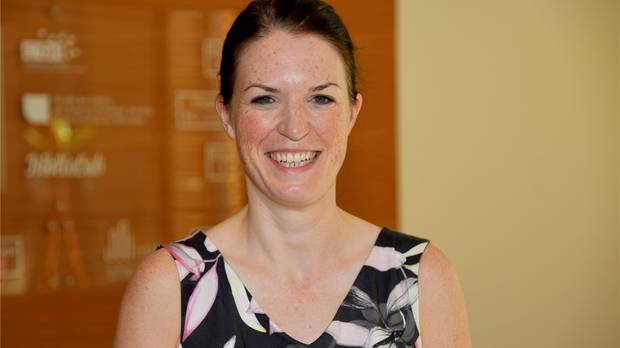Researcher Dr Anja Leist, from the University of Luxembourg, receives a Starting Grant of 1.5 million euros in funding from the European Research Council (ERC) to support her work on dementia and cognitive impairment in older ages. Anja is Steering Group member of the World Young Leaders in Dementia network.

Researcher Dr Anja Leist, from the University of Luxembourg, receives a Starting Grant from the European Research Council (ERC) to support her work on dementia and cognitive impairment in older ages. In total she will receive 1.5 million euros during five years to build a research team and lead her promising research project.
Anja Leist’s research project CRISP – “Cognitive Aging: From Educational Opportunities to Individual Risk Profiles” – aims to provide comprehensive knowledge and techniques to identify risk factors and people at risk of dementia, in order for them to benefit as early as possible from behavioural interventions. Her project is strongly linked to computational sciences.
Dementia, which manifests itself through deterioration in memory, thinking, behaviour and the ability to perform everyday activities, affects roughly 50 million people worldwide and almost ten million people in Europe. Pathologies of dementia, such as Alzheimer’s disease, have devastating effects on people and families. They represent a great challenge and cost for caregivers and health systems. Despite this, there is currently no treatment to reverse or cure cognitive impairment.
Part 1: How inequalities determine cognitive ageing
We already know that childhood and young adulthood are immensely important for laying the foundations of cognitive functioning over a person’s life course. However, we need to know more about how our environment systematically shapes how much we realise our cognitive potential. This is the first mission of Anja Leist’s research team.
“Innate abilities and parental background, but also external factors such as education, social environment, gender equality and professional development shape to what extent we can realise the potential of our brain,” explains Dr Anja Leist. “During our lifetime, these factors contribute to what we call building up cognitive reserve, meaning a kind of cognitive ‘fitness’ or the ability to improvise and find new ways to do the things we need to do. This cognitive reserve helps us in time to buffer or delay cognitive decline.”
By quantifying the role of contextual inequalities related to education and gender, research results should guide policymaking in these areas. “It should be imperial that everyone benefits from educational and social environments that favour building cognitive reserve,” continues Anja Leist.
Part 2: New methods to capture the complexity of cognitive evolution
Today, there are behavioural interventions – designed to stimulate adequate behavior – available that can delay cognitive decline for people at risk. However, scientists and medical staff face a gap of knowledge how to identify people at risk with low-cost, non-invasive procedures. Thus, the second part of the research project aims to step up statistical models currently used in the social sciences with new machine learning techniques. What sounds like an improbable combination is in fact the key to capture the complexity of cognitive decline.
“Cognitive evolution doesn’t change in a linear fashion, it varies in speed and power, in its consistency or recoils,” Anja Leist clarifies. “Considering the numerous influences of genetics, social and behavioral factors, traditional statistical methods hardly capture this complexity. “ At the same time, the new machine learning techniques cannot just be blindly adapted from big data applications, but need to be combined with sophisticated causality methods in order to shed light on the complexity of cognitive aging.
With the new statistical models, health professionals can better predict the cognitive evolution of a person at risk. Persons at high risk of dementia can then be supported to make those changes in their lives that are necessary to remain stable or to significantly buffer a cognitive pathology.
A lifetime of dedication
Dr Anja Leist, nominated as Associate Professor at the University, specialises in social epidemiology, in particular linked to social inequalities and gerontology. Being a Fellow of the Gerontological Society of America, she volunteers in a worldwide network, the World Young Leaders in Dementia, and organised Dementia Awareness Workshops in Luxembourgish secondary schools, teaching teenagers how to recognise dementia and interact with people affected by it.
This article was first published and announced on the University of Luxembourg’s new page here. Find out more about the European Research Council (ERC) and their work in supporting top researchers from around the world.
Anja Leist is an Associate Professor at the Institute for Research on Socio-Economic Inequality (IRSEI). She received a PhD in Psychology from the University of Trier, Germany, and postgraduate training in Population Health at the Erasmus Medical Center in Rotterdam, Netherlands. Anja has published on the topics of older-age health and cognitive functioning, life-course and social inequalities, and technology & ageing, in journals such as Gerontology, Journal of Epidemiology and Community Health, and Annals of Epidemiology. She is main editor of a Springer volume on ‘Health and Cognition in Old Age’ published in 2014. Anja received funding by the National Research Fund Luxembourg in various schemes, among those the ‘Future Leaders of Ageing Research in Europe’ programme coordinated by the European Research Area on Ageing 2011-2014 (FLARE 2). In 2018 she received an ERC Starting Grant on the topic of cognitive ageing (2019-2023, grant agreement No. 803239). She is Academic Editor of PLOS ONE and editorial board member of GeroPsych – The Journal of Gerontopsychology and Geriatric Psychiatry. She received the 2014 Richard Kalish Innovative Publication Award of the Gerontological Society of America (press release) and was elected Fellow of the Gerontological Society of America in 2018. Anja is Steering Group member of the World Young Leaders in Dementia network.




